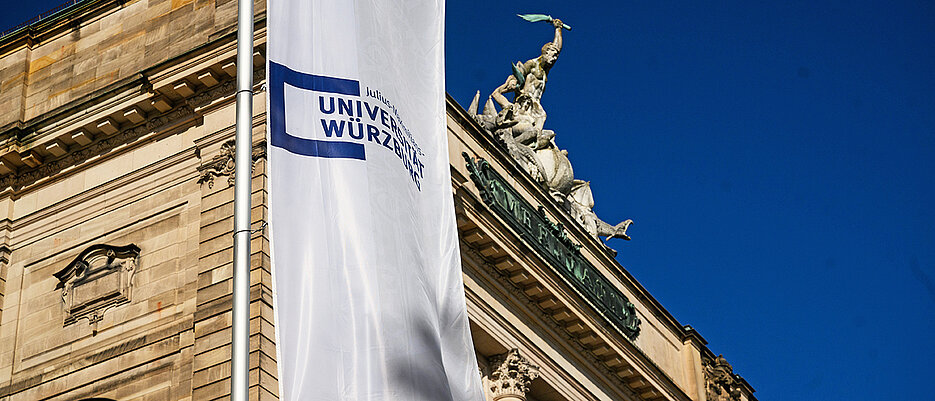A new Research Training Group in medicine and an extended one in psychology, psychiatry and neurobiology: researchers in Würzburg are celebrating funding success from the German Research Foundation (DFG).

Research Training Groups (RTGs) are research programmes dedicated specifically to the training of early-career scientists. Funded by the German Research Foundation, they offer structured doctoral education. Within an RTG, doctoral researchers jointly investigate different aspects of an overarching research theme.
In the latest funding round, Julius-Maximilians-Universität Würzburg (JMU) succeeded with two proposals. One newly approved Research Training Group is situated in medicine and focuses on the process of thrombo-inflammation. In addition, the RTG Neural Mechanisms of (Mal)Adaptive Approach and Avoidance Behaviour (RTG 2660), established in 2021, has been granted a further four and a half years of funding.
Platelets and Inflammation in Focus
The new Research Training Group RTG 3190 - Thrombo-Inflame: Dissecting and Modulating Megakaryocyte/Platelet-Driven Thrombo-Inflammation addresses a central disease mechanism: thrombo-inflammation, the intricate interplay between platelets, the coagulation system and the body's inflammatory processes. While thrombosis and inflammation were long considered separate, experimental and clinical evidence now shows that they are closely intertwined in conditions such as stroke, infections, autoimmune diseases and severe injuries. Despite its clinical importance, this interplay remains insufficiently understood.
This is precisely where the new RTG comes in. Across interdisciplinary projects, researchers investigate how platelets interact with immune cells and vascular wall cells, and which molecular signalling pathways drive these processes. The projects span the entire translational spectrum - from molecular mechanisms in mouse models to clinical studies in humans. The aim is to uncover key regulatory mechanisms of thrombo-inflammatory responses and identify new therapeutic targets.
State-of-the-art methodologies form the backbone of the RTG: single-cell analyses, advanced bio-imaging, and intravital microscopy, all of which allow unprecedented insight into platelet behaviour under pathological conditions.
Doctoral researchers benefit from intensive collaboration between diverse fields - platelet and megakaryocyte biology, immunology, vascular biology, bio-imaging, and experimental and clinical medicine. Strong international networks and partnerships with industry provide an ideal environment for shaping this emerging field and developing strategies that may ultimately lead to improved therapies.
The speaker of RTG 3190 is Professor Bernhard Nieswandt, Chair of Experimental Biomedicine I at the University Hospital Würzburg (UKW) and research group leader at the Rudolf Virchow Center (RVZ). The RTG receives €5.477 million in funding over five years.
Between Approach and Avoidance
The Research Training Group RTG 2660 - Neural Mechanisms of (Mal)Adaptive Approach and Avoidance Behaviour has been funded since 2021. The interdisciplinary team has now secured an extension for a further four and a half years.
In this RTG, doctoral researchers study two fundamental behavioural tendencies: approaching positive stimuli and avoiding potential threats. Psychological or neurological disorders such as anxiety disorders, addiction or Parkinson's disease can disrupt this balance. Combining perspectives from psychology, psychiatry and neurobiology, the RTG aims to better understand how these processes are represented and regulated in the brain.
In the second funding phase, a new emphasis lies on experimental modulation. Rather than primarily characterising basic approach-avoidance mechanisms, the projects now focus on how these behavioural patterns can be deliberately influenced - through learning experiences, training or interventions targeting specific neuronal networks. The aim is to identify which forms of plasticity could help improve impaired decision-making in clinical conditions.
For this, doctoral researchers can draw on a broad methodological spectrum - from behavioural studies in mouse models to functional imaging and virtual-reality paradigms in humans. Close interdisciplinary collaboration and a comprehensive qualification programme enable the integration of findings across research levels, opening up new perspectives on approach and avoidance.
The speaker of the RTG is psychologist Professor Matthias Gamer. The leadership team also includes Professor Grit Hein (Translational Social Neuroscience), Professor Andrea Reiter (Psychotherapy and Intervention Psychology) and Professor Philip Tovote (Clinical Neurobiology). The DFG funds the RTG with just under €6 million.






